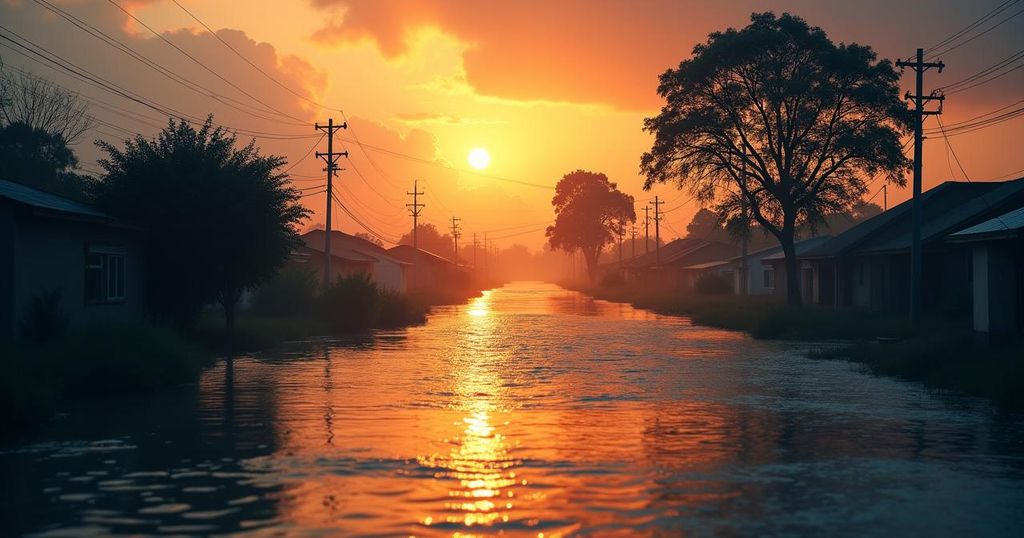Over 1,000 people have died and at least 740,000 have been displaced due to flooding in West and Central Africa, impacting over 5 million. Chad, Niger, and Nigeria are the hardest hit, with significant damage to infrastructure and agriculture. The UN has allocated funds for relief, but further financial assistance is urgently needed.
Recent reports from the United Nations indicate a dire situation in West and Central Africa, where floods have resulted in the tragic loss of over 1,000 lives and the displacement of at least 740,000 individuals. The floods have severely affected more than 5 million people across 16 countries, with the nations of Chad, Niger, and Nigeria bearing the brunt, collectively comprising over 80% of those impacted. The widespread flooding in the region can be attributed to unprecedented heavy rainfall, particularly in the central and western portions of Africa, as well as the Sahel. This natural disaster has resulted not only in a significant human toll but has also led to extensive damage to infrastructure. Reports suggest that hundreds of thousands of residences, educational institutions, and healthcare facilities have been compromised, with approximately half a million acres of agricultural land devastated. This destruction poses a substantial threat to food security, exacerbating malnutrition crises, especially in Chad and Niger. Furthermore, the underprivileged living conditions created by the floods are heightening the risk of waterborne diseases, notably cholera, in affected areas, particularly in Niger and Nigeria. In response to this calamity, Ms. Joyce Msuya, the assistant secretary-general for humanitarian affairs and deputy emergency relief coordinator, has allocated $35 million towards relief efforts in Chad, Niger, Nigeria, the Democratic Republic of the Congo, and Congo. However, she emphasized that additional financial resources are critically needed to address the extensive humanitarian crisis adequately. Notably, in Nigeria, a dedicated allocation of $5 million has been earmarked to assist approximately 280,000 individuals with essential resources such as food, clean water, and shelter, in addition to efforts to mitigate cholera risks. Despite these allocations, it is pertinent to highlight that the $927 million Humanitarian Response Plan for Nigeria has to date received only 46% of its required funding, according to official sources.
The ongoing flood crisis in West and Central Africa is currently one of the most severe humanitarian disasters facing the region, as reported by the United Nations Office for the Coordination of Humanitarian Affairs (OCHA). This crisis has resulted from a climatic pattern involving significant rainfall, leading to life-threatening floods that have impacted both urban and rural populations. The three countries most affected—Chad, Niger, and Nigeria—are dealing with compounded challenges, including existing food security issues and fragile health systems, which exacerbate the risk of disease outbreaks and malnutrition. The international community, represented by various UN bodies, is mobilizing resources to address the immediate humanitarian needs, although funding challenges remain a significant barrier to effective response implementation.
In summary, the flood crisis affecting West and Central Africa underscores the urgent need for immediate humanitarian intervention as communities face substantial loss of life, displacement, and the destruction of vital infrastructure. The actions taken by the United Nations and other humanitarian agencies provide critical support, yet the continued lack of funding poses a severe threat to the effectiveness of these efforts. The situation demands ongoing attention and action from both local governments and international partners to prevent further deterioration and to alleviate the suffering of millions in the region.
Original Source: www.aa.com.tr






